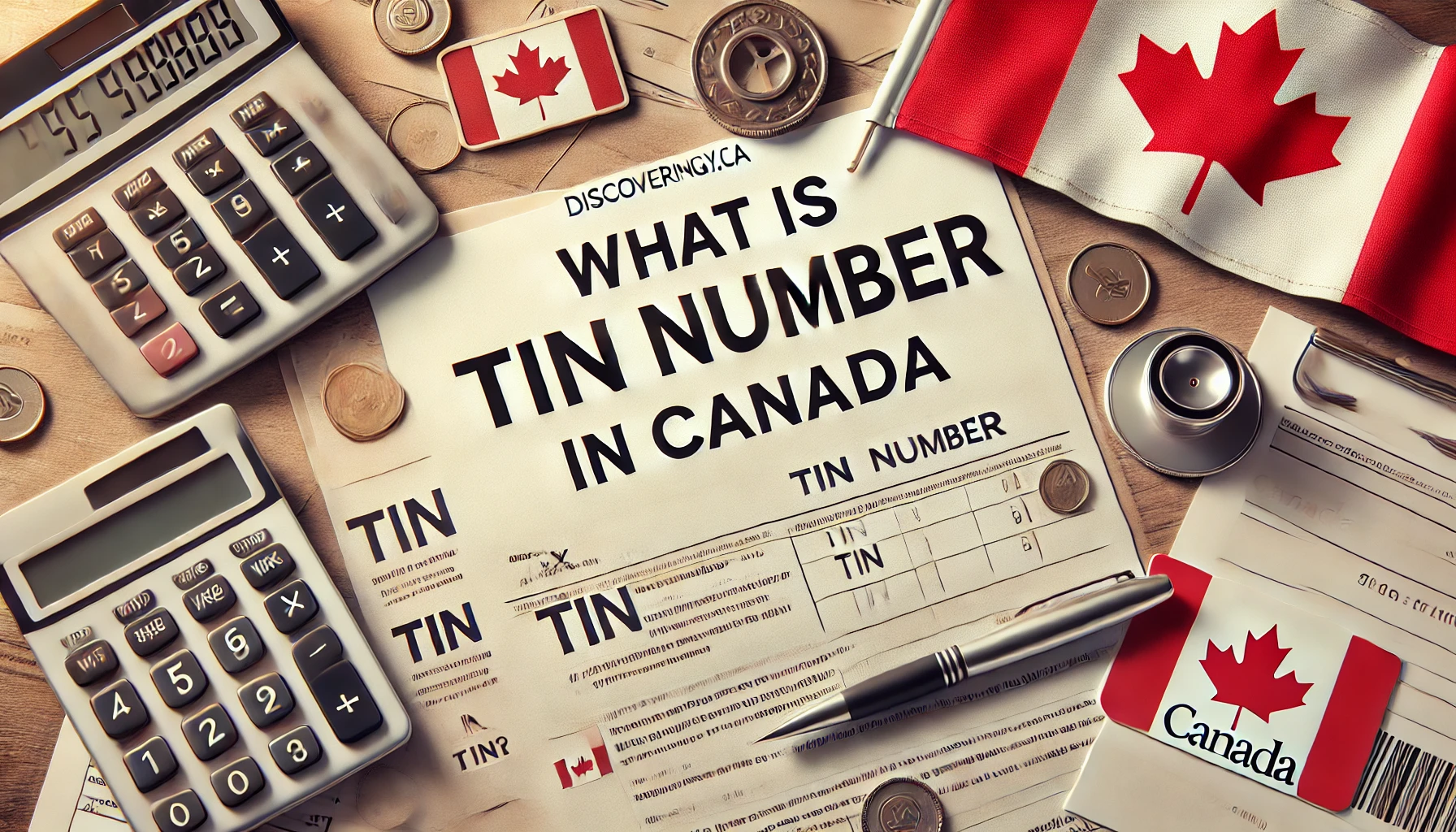What Is a TIN Number in Canada? Understanding Tax Identification Essentials
Navigating the world of taxes can be daunting, especially when dealing with terms like TIN or Tax Identification Number. In Canada, a TIN serves as a vital identifier for tax-related purposes. But what does it encompass, and who needs one?
What Is a Tax Identification Number (TIN) in Canada?
A Tax Identification Number (TIN) is a unique numeric code used by the Canada Revenue Agency (CRA) to manage taxes and track financial transactions for individuals and businesses. TINs are essential for filing tax returns, reporting income, and other official interactions with the CRA. Depending on the context, your TIN could be one of the following:
- Social Insurance Number (SIN): This nine-digit number is used primarily by Canadian citizens, permanent residents, and temporary residents for personal tax matters and employment records.
- Business Number (BN): This is a unique number assigned to businesses registered in Canada. It’s used when a company needs to report activities such as corporate income tax, payroll deductions, and GST/HST.
- Individual Tax Number (ITN): Non-residents or individuals who are not eligible for a SIN but still need to pay Canadian taxes or file returns receive an ITN.
Breakdown of the Different TIN Types
1. Social Insurance Number (SIN)
- Purpose: Primarily for individuals, the SIN is necessary for employment, receiving government benefits, and filing taxes.
- Usage: Employers and financial institutions require your SIN for income reporting. It’s also needed when applying for tax-related benefits.
- Security: Since the SIN is sensitive personal information, it must be safeguarded to prevent identity theft.
2. Business Number (BN)
- Purpose: The BN simplifies dealings between the business community and the federal government. Each business gets a unique number to track various tax accounts (e.g., GST/HST, payroll).
- Registration: A BN is obtained when a business registers with the CRA. This number stays consistent across different tax-related accounts, ensuring efficient management.
3. Individual Tax Number (ITN)
- Purpose: An ITN is issued to non-residents who earn income in Canada or require a tax refund. This number is necessary when an individual doesn’t qualify for a SIN but still has tax obligations.
- Application Process: Applicants must complete specific forms and provide proof of identity to receive an ITN.
Why Is a TIN Number Important?
Having a TIN is crucial for tax compliance and transparency. The CRA uses TINs to identify individuals and businesses in tax records, ensuring proper reporting and enforcement of tax laws. Here’s why it matters:
- Tax Filing: Whether you’re an individual earning income in Canada or a business owner, your TIN allows you to file accurate tax returns.
- Reporting and Transparency: The TIN ensures that income and deductions are appropriately reported to the CRA, reducing the risk of tax evasion or errors.
- Financial Transactions: Many banks and financial institutions require your TIN for account setup or significant transactions, such as investments or loans.
How to Obtain a TIN in Canada
The process of getting a TIN varies depending on whether you need a SIN, BN, or ITN:
- For a Social Insurance Number (SIN):
- Where to Apply: SINs can be obtained at Service Canada locations or through an online application.
- Documents Needed: Proof of identity, immigration status, and a supporting document like a birth certificate or work permit.
- For a Business Number (BN):
- Where to Register: Businesses can register online through the CRA website or via telephone.
- Use Cases: Once registered, you’ll use your BN for all federal tax accounts, making it easier to manage business obligations.
- For an Individual Tax Number (ITN):
- Who Needs It: If you’re a foreign individual earning income in Canada or claiming tax credits, you’ll need an ITN.
- Application Method: You must submit Form T1261 (Application for a Canada Revenue Agency Individual Tax Number) along with required identification.
Frequently Asked Questions (FAQs)
1. Is my SIN considered my TIN for tax purposes?
Yes, if you are a Canadian resident or citizen, your SIN acts as your TIN. It’s required for tax returns, employment, and receiving benefits.
2. Can businesses have more than one TIN?
No, each business entity receives a unique BN, but they may have multiple program accounts (e.g., payroll, GST/HST) linked to this number.
3. What should I do if I lose my SIN card?
Report the loss to Service Canada and take steps to protect your identity. Replacement can be requested through Service Canada.
4. Is an ITN valid indefinitely?
Yes, once issued, an ITN doesn’t expire. However, it cannot be converted into a SIN if your residency status changes; you’ll need to apply separately for a SIN.
5. Can I use my TIN for financial services?
Yes, financial institutions often require your TIN for setting up accounts, reporting investment income, and other significant financial activities.
Final Thoughts on TIN Numbers in Canada
Understanding what a TIN is and how it’s used is essential for navigating taxes and financial obligations in Canada. Whether it’s your SIN for personal matters, a BN for your business, or an ITN for non-resident tax requirements, keeping your TIN secure and up-to-date is crucial.
By familiarizing yourself with these identifiers, you ensure compliance with Canadian tax regulations and simplify your interactions with the CRA.






